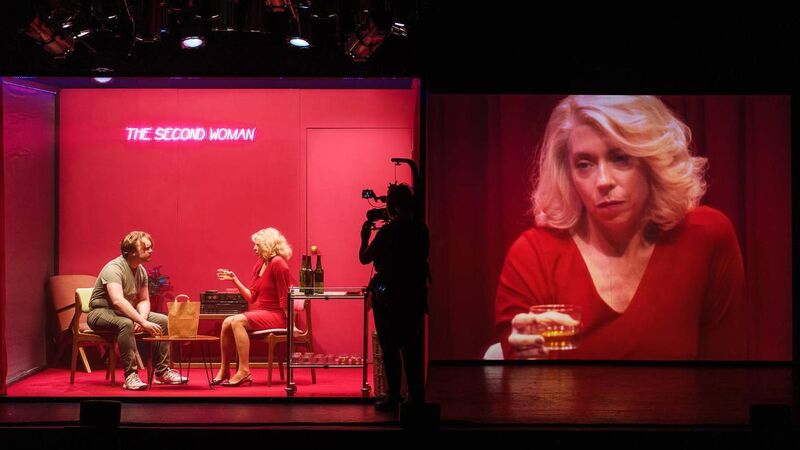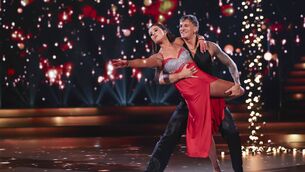I was one of the men in The Second Woman. This is what it was like...

Eileen Walsh and one of 100 other actors in The Second Woman at Cork Opera House, as part of Cork Midsummer Festival. Picture: Jed Niezgoda
I’ve just arrived backstage at Cork Opera House, where I’ll be taking part in the big event of the city’s Midsummer Festival, indeed, the year in theatre. is an endurance theatre piece by Australian duo Nat Randall and Anna Breckon which pairs the redoubtable Eileen Walsh with 100 different performers for a short scene played out repeatedly over 24 hours. The mind boggles at the demands on her, the body trembles at the thought of taking part.
The reassuring stage directors run us through our marks, telling us, no matter what, to have fun. One goes to the “noodle room”, as she jokingly calls it, and picks one of the dozens of small bags containing chopsticks and takeaway cartons. There are kettles there too, for the tea that’ll masquerade as the whiskey being drunk in the scene. I glance at the script for the last time. I’m Martin. We all are. Walsh is Virginia. A couple at the end of an affair is the most straightforward reading, although we Martins are invited to fill in the gaps or improvise.




